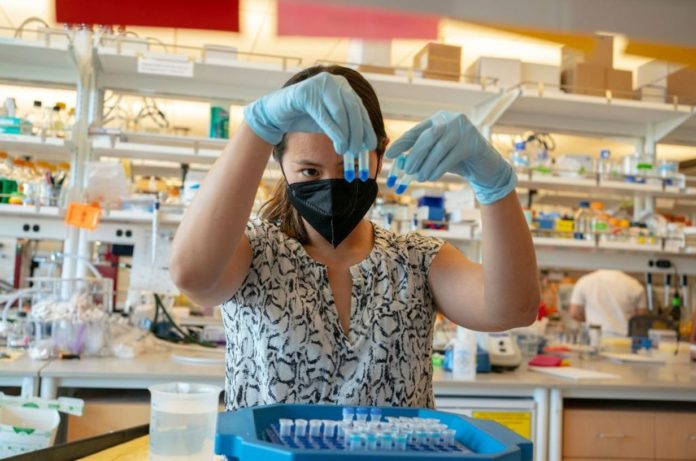Despite significantly increasing Covid infections, some people have managed to prevent coronavirus infection. Studies suggest that one such factor could be your blood type.
Many people may be concerned about their chance of contracting the virus, either for the first time or again, given the sharp increase in cases.
Research shows that, depending on the type of blood you have, your risk may be cut by a lot.
Researchers in China first proposed the relationship between blood types and susceptibility to a Covid-19 infection in March 2020.
A month later, a publication from Columbia University reaffirmed these principles in more detail.
In an interesting twist, DNA testing company 23andMe was able to link customers with Covid infections to 750,000 people who were hospitalized for Covid-19 and had been diagnosed with it. Those with type O blood were better protected.
A New England Journal of Medicine study found individuals with blood type A had a 45 percent higher risk of Covid infection than others.
Again, the results showed that blood type O had a 35% lower infection risk.
Scientists and researchers have confirmed that your blood type can significantly affect your risk of contracting Covid, with types A and O being more and less vulnerable respectively.
According to Healthcheck UK Live’s Dr. Xand van Tullekan: “There is some truth in it, or at least there is some data to support it.
According to Healthcheck UK Live’s Dr. Xand van Tullekan: “There is some truth in it, or at least there is some data to support it. “There was a study in Wuhan that said that blood type A was more susceptible, and that’s our most common blood type in the UK.
“But whatever blood type you are, your behaviour is the same. Stay at home, and don’t go outside unless it is for proper exercise, or essential activities.”
Even though you’re type O, that doesn’t mean you’re safe.
Experts caution that all research to date have only examined blood type in relation to symptomatic cases of coronavirus.
Although those with type O blood may be slightly more resistant to the virus and those with type A blood may be slightly more susceptible, the same guidelines still apply when someone is infected.
If you are a close contact, have symptoms, or have tested positive, there are steps you may take to lessen the transmission of the infection.
According to experts, If you are not eligible for testing and you have signs of a respiratory illness, such as coronavirus, and you have a fever or do not feel well enough to go to work or engage in typical activities, you should stay at home and avoid contact with others.
Do this until you feel better or until you no longer have a high temperature (if you had one).
If your coronavirus test is positive, you should stay home and limit your contact with others for five days from the test date or the day your symptoms first appeared (whichever was earlier).
The day following your test should be treated as day one.
Image Credit: Getty
You were reading: Having This One Particular Blood Type Can Increase the Risk Of Catching Covid
